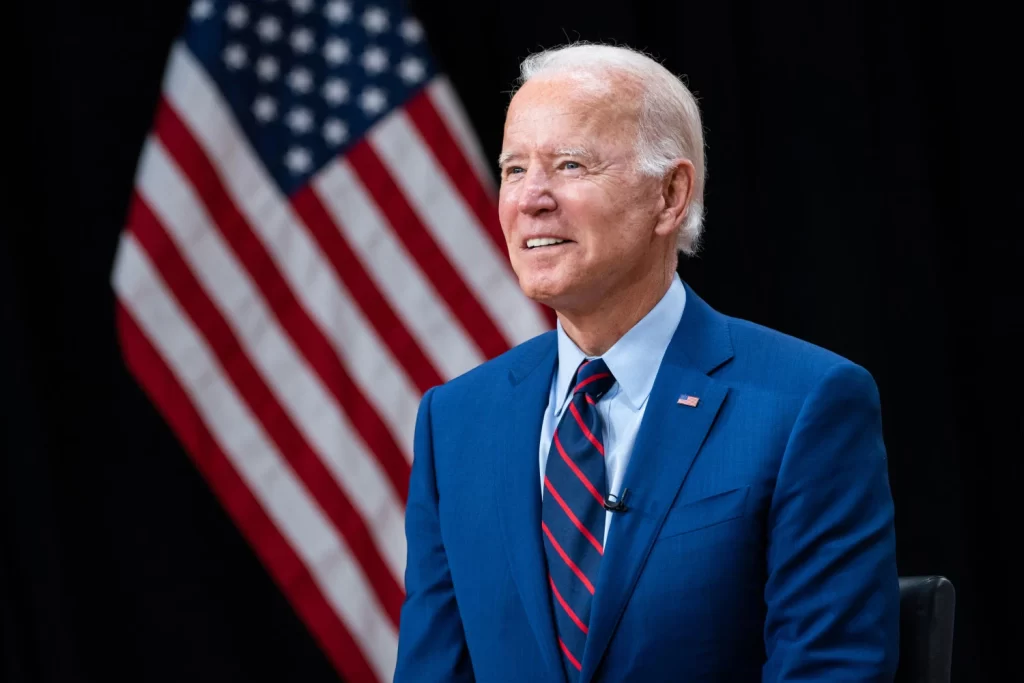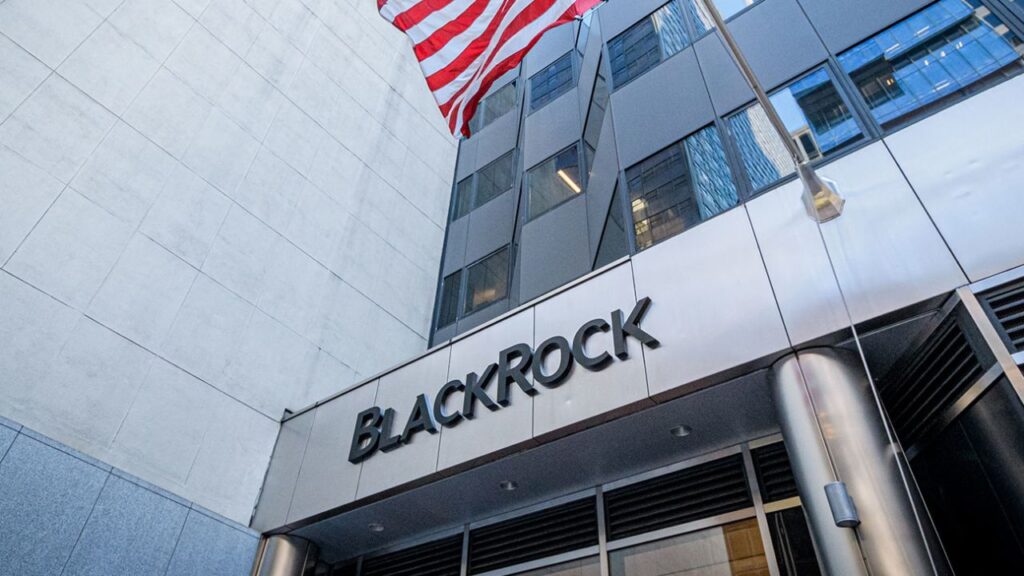Binance, Binance.US, and Changpeng “CZ” Zhao, the CEO of Binance, have accused the U.S. Securities and Exchange Commission (SEC) of issuing misleading statements regarding an ongoing securities lawsuit.
Lawyers representing the crypto exchanges filed a motion on June 21 in the U.S. District Court for the District of Columbia, claiming that the SEC’s statements in a press release on June 17 were deceptive. They have requested the financial regulator to adhere to the appropriate rules of conduct.
The motion refers to a statement made by SEC Enforcement Director Gurbir Grewal, where he alleged that CZ and Binance had the ability to commingle or divert customer assets.
However, the legal teams argued that a court transcript from a June 13 hearing contradicts these claims. The filing emphasized that there is no evidence of dissipation, commingling, or misuse of customer assets by Binance.US.
Furthermore, it accused the SEC’s press release of causing confusion in the market, potentially harming Binance.US customers and providing misleading descriptions of the evidence to the jury pool.
If approved by a federal judge, the order resulting from this motion could prevent the SEC from making certain public statements related to the Binance lawsuit that could significantly impact the court proceedings.
The Binance legal team presented a portion of the court transcript that shows the SEC’s acknowledgment that there is no evidence of Binance.US assets being sent offshore.
The court filing is part of an ongoing lawsuit filed by the SEC on June 5 against Binance, Binance.US, and CZ.
The lawsuit alleges that the exchanges conducted unregistered securities offerings, and Binance failed to register as an exchange or broker-dealer clearing agency. SEC Chair Gary Gensler accused CZ and Binance of misleading investors about their risk controls and sought disgorgement and other penalties.
Initially, the SEC requested a court order to freeze all assets of Binance.US. However, a compromise was reached, allowing only the exchange’s employees access to client funds during the litigation process.
Amid these legal proceedings in the United States, Binance announced the launch of a regulated cryptocurrency platform in Kazakhstan.
As the case progresses, the motion filed by Binance, Binance.US, and CZ aims to challenge the SEC’s statements and ensure compliance with appropriate rules and standards of professional conduct.
Other Stories:
Polygon Co-founder Suggests Proposal to Improve Security of PoS network
Moody’s Issues Warning About Lack of Bipartisan Support for Crypto Regulation in the US
United States Agencies Unite to Form Task Force Targeting Darknet and Cryptocurrency Crimes
As more and more people continue to gravitate toward the use of transparency-centric technologies, blockchain has emerged as a revolutionary force, promising to transform various sectors with its unique capabilities.
One industry, however, that stands out as a prime candidate for disruption in this regard is the travel industry. With its labyrinth of intermediaries, lack of pricing transparency, and reliance on outdated technology, the travel market seems ripe for a blockchain-driven revolution.
Pioneering the Use of Blockchain in Travel
From the outside looking in, blockchain’s utility in relation to global travel extends beyond just improving existing booking avenues. To elaborate, it opens up possibilities for new business models and products that can revamp industry processes.
For instance, blockchain can enable peer-to-peer transactions, allowing travelers and service providers to interact directly without the need for intermediaries. This can lead to more personalized and cost-effective travel experiences.
Moreover, blockchain can enhance data security in the travel industry. By storing data across a network of computers, blockchain makes it nearly impossible for hackers to compromise the data. This can be particularly beneficial for protecting sensitive information such as personal details and payment data.
To this point, Camino Network, developed by Chain4Travel AG, serves as a blockchain ecosystem designed specifically for the travel industry. Powered by the Camino Token (CAM), the network aims to streamline business processes, reduce transaction costs, and expedite blockchain finality to mere seconds. Moreover, the Camino Network blockchain operates as a consortium maintained and governed by the travel industry for the travel industry.
This unique approach ensures that the network remains responsive to the needs of the industry, fostering innovation and growth.
By eliminating the need for cumbersome agreements and reducing risk throughout the business process, Camino paves the way for a more efficient and transparent travel industry.
Why Camino Network? The Benefits of a Blockchain Solution
The travel industry is currently hampered by slow innovation, outdated technology platforms, and a myriad of bilateral agreements. These factors have created an oligopolistic structure that stifles growth and innovation. Camino Network, with its novel solution, aims to disrupt these structures and pave the way for a new, common travel infrastructure that serves everyone equally.
Camino Network’s semi-permissionless consortium blockchain, which uses the PoSA consensus algorithm, has garnered significant support from key market participants in the travel industry.
This support is reflected in the 4.3 million CHF in seed investment raised by the project from companies within the travel space as well as an additional 5 million CHF in Private Pre-sale from over 80 companies and more than 220 private investors. Participants include notable industry players such as Lufthansa, Eurowings, Miles & More, TUI, DER, Schauinsland, Juniper, Hotelplan, and many more.
This support has been instrumental in positioning Camino as a viable alternative to the current hierarchical structure of the travel industry. By giving governance power to consortium members, Camino ensures reasonable transaction fees, promoting the development of new travel products and positioning itself as the global operating system for global utilization.
Lastly, with its base in Zug, Switzerland, a region with established crypto market regulations, Camino provides a stable environment for the development and growth of blockchain applications in the travel industry.
Looking Ahead: The Potential for Mass Adoption
The tourism sector, with its global reach and diverse demographics, presents a unique opportunity for blockchain mass adoption. As people from all walks of life continue to become more financially stable and therefore traverse the globe as per their financial means, the implementation of blockchain in this industry could lead to widespread acceptance and use of the technology.
Camino Network is well-positioned to drive this mass adoption. The network’s commitment from over 80 validators and support from more than 140 travel companies demonstrates the industry’s readiness to embrace blockchain technology. Furthermore, several use cases are already being built on the Camino infrastructure, including hotel-explorer.io, geo-explorer.io, sleap.io, and booking.travel-inblock.io. These applications highlight the versatility of the network and its potential to revolutionize the travel industry.
Therefore, as we look ahead to a future driven by blockchain tech, it will be interesting to see how the travel sector continues to evolve and grow from here on end.
U.S. President Joe Biden will convene a meeting with Silicon Valley’s AI experts to deliberate on the potential hazards, policies, and opportunities tied to Artificial Intelligence (AI).
This discussion is set to take place between Biden’s fundraising campaign stops in California.
The assembly of eight experts comprises distinguished AI safety specialists and researchers. Among those are Jim Steyer, founder of Common Sense Media;
Tristan Harris, co-founder of the Center for Humane Technology; Fei-Fei Li, co-director of Stanford’s Human-Centered AI institute; Joy Buolamwini, founder of the Algorithmic Justice League; and Sal Khan, founder of the Khan Institute.
These individuals are esteemed for their strides in areas like education, policy, safety, and harm mitigation.
This meeting, scheduled at 4:00 pm Pacific Standard Time at the Fairmont Hotel in San Francisco, is one in a series of discussions the president is taking part in.
The discourse will be broadcast live on the official White House YouTube channel. Earlier, White House officials have met with CEOs of leading global AI sector companies, including Google, Microsoft, and Anthropic.
The U.S. Senate has also recently engaged with AI figureheads such as OpenAI CEO Sam Altman, IBM chief privacy and trust officer Christina Montgomery, and NYU’s Gary Marcus, to mull over AI policies.
Altman suggested creating a federal regulatory body to monitor the burgeoning AI industry, an idea Marcus seconded, while Montgomery advocated for a more precision-based approach from Congress.
Despite the growing dialogue around AI, the U.S. government has yet to establish a comprehensive strategy for AI regulation. As Europe, China, and the UK take strides towards extensive legislation for AI, the U.S. remains trailing in implementing broad-scale cryptocurrency and AI laws.
The intertwining of AI with the cryptocurrency, blockchain, and Web3 industries makes these regulations even more crucial.
Other Stories:
Analysis: Why is Bitcoin (BTC) Price Up Today?
Fund Manager Predicts Bitcoin Will Reach $1 Million, Gives Bullish Coinbase Assessment
BlackRock’s recent filing for a spot Bitcoin exchange-traded fund (ETF) has sparked a wave of optimism in the investment industry, leading to new filings by other firms. WisdomTree, an asset management fund based in New York, is the latest company to file for a spot Bitcoin ETF.
In its filing to the Securities and Exchange Commission (SEC) on June 21, WisdomTree requested permission to list its “WisdomTree Bitcoin Trust” on the Cboe BZX Exchange with the ticker symbol “BTCW.”
This marks WisdomTree’s third attempt at obtaining approval for a spot Bitcoin ETF, with previous applications being rejected due to concerns of fraud and market manipulation. WisdomTree currently oversees approximately $83 billion in assets.
One notable difference between BlackRock’s filing and previous attempts is its intention to enter into a “surveillance sharing agreement” with the Chicago Mercantile Exchange (CME) futures markets. BlackRock’s proposal references the SEC’s approval of a Bitcoin futures fund by Teucrium, highlighting the CME’s ability to surveil and prevent price distortions caused by manipulative efforts.
WisdomTree’s filing also includes a willingness to enter into a similar surveillance agreement with a US-based spot trading platform for Bitcoin.
Shortly after WisdomTree’s filing, global investment manager Invesco “reactivated” its application for a spot Bitcoin ETF. Invesco’s filing requests the listing of its “Invesco Galaxy Bitcoin ETF” on the Cboe BZX exchange.
The company emphasizes that a spot Bitcoin ETF utilizing professional custodians and service providers eliminates the need for investors to rely on loosely regulated offshore vehicles, thereby offering better protection for their investments.
While the SEC has yet to approve a spot Bitcoin ETF, the recent activities by WisdomTree and Invesco have reignited the race for approval. Bloomberg senior ETF analyst Eric Balchunas expressed optimism and attributed the renewed interest to BlackRock’s involvement.
Balchunas also highlighted BlackRock’s §impressive track record, with a success rate of “575-1” in obtaining ETF approvals from the regulator.
Furthermore, rumors are circulating that Fidelity Investments, a multi-trillion-dollar fund manager with $4.9 trillion in assets under management, may join the race for a spot Bitcoin ETF. Speculation suggests that Fidelity Investments may file for its own ETF or consider acquiring Grayscale’s GBTC ETF product. However, there has been no official confirmation from Fidelity regarding these rumors.
Overall, BlackRock’s filing for a spot Bitcoin ETF has spurred optimism within the investment industry, leading to new filings by WisdomTree and Invesco.
The potential entry of Fidelity Investments further indicates the growing interest in spot Bitcoin ETFs and their potential benefits for investors.
Other Stories:
Moody’s Issues Warning About Lack of Bipartisan Support for Crypto Regulation in the US
Binance Takes Steps Towards Enhanced Bitcoin Transactions with Lightning Network Integration
United States Agencies Unite to Form Task Force Targeting Darknet and Cryptocurrency Crimes
Apple has taken down a fraudulent Trezor wallet app from its App Store, but concerns remain as other copycat apps continue to linger.
The removal came after Rafael Yakobi, Managing Partner at Crypto Lawyers, alerted users to the presence of a malicious app disguised as the popular crypto hardware wallet, Trezor. Yakobi warned that the app, named “Trezor Wallet Suite,” was designed to steal cryptocurrency by requesting users’ seed phrases.
Although the total number of victims remains unknown, Yakobi suggested it could be in the hundreds or thousands.
Upon searching the US version of the App Store, Cointelegraph failed to find the referenced malicious app. Apple typically acts swiftly to remove suspicious or fraudulent apps once they are notified.
However, a search for “Trezor Wallet Suite” did yield another potentially suspicious application called “MyTREZŌR Suite: One Edition.”
With only two reviews, both warning of the app’s scam nature and its intention to steal crypto, it appears that Apple has not yet fully addressed the issue.
Apple maintains that apps on its official App Store undergo thorough vetting and security clearance. To ensure the safety of downloading mobile applications for crypto wallets, users are advised to obtain them exclusively from the manufacturers’ official websites.
Although an iOS app is available for Trezor users, it serves as a companion app with limited functionality.
According to reports from Apple news outlet 9to5mac.com, the tech giant is generally stringent in its approval of crypto-related apps, allowing them only under strict circumstances.
However, despite Apple’s claims that the App Store is a trustworthy platform, the outlet highlights the challenges the company faces in completely eradicating scams from the store.
Instances of fake wallet apps on Apple’s App Store are not new. In 2021, a user allegedly lost $600,000 worth of Bitcoin after downloading a malicious Trezor app from the store.
To mitigate such risks, it is crucial for users to exercise caution and opt for trusted sources when downloading crypto-related applications.
Other Stories:
United States Agencies Unite to Form Task Force Targeting Darknet and Cryptocurrency Crimes
Binance Takes Steps Towards Enhanced Bitcoin Transactions with Lightning Network Integration
Moody’s Issues Warning About Lack of Bipartisan Support for Crypto Regulation in the US
Moody’s, the credit ratings agency, has issued a report warning that the lack of bipartisan support for crypto regulation in the United States could make the country less attractive to investors and companies.
The report, released on June 20, highlighted the political divide among lawmakers regarding legislation focused on digital assets, specifically in relation to stablecoins and the establishment of a comprehensive regulatory framework.
Moody’s identified significant disparities between the approaches of Democrats and Republicans when it comes to crypto-focused legislation.
One key area of contention is the regulation of stablecoins, with lawmakers differing on whether oversight should be conducted at the federal or state level. Another concern is the need to address consumer protection issues, especially in light of several crypto companies going bankrupt in 2022.
The report stated, “Despite agreement on the need for consumer protections and a harmonized framework for digital assets, Democrats and Republicans hold different views on how to achieve these objectives.”
Moody’s warned that the failure to reach a bipartisan agreement and advance legislation specifically addressing digital assets could diminish the attractiveness of the United States compared to other jurisdictions that are actively implementing comprehensive rules.
Moody’s specifically highlighted the contrasting views between Patrick McHenry, Chair of the House Financial Services Committee and representative of the Republican party, and Maxine Waters, ranking member and representative of the Democratic party.
Both expressed their concerns during a hearing on the future of digital assets held on June 13. However, Moody’s noted that the gathering only served to highlight the deepening political disagreements surrounding the establishment of a crypto framework.
The uncertain path toward bipartisan agreement and the anticipation of extensive debates in Congress have raised concerns among many crypto firms.
Numerous companies have criticized U.S. lawmakers for the lack of regulatory clarity and have indicated that relocating outside the country might be in their best interest.
For instance, executives from Coinbase, currently based in the U.S. and facing legal action from the Securities and Exchange Commission, visited the United Arab Emirates in May to explore the region as a potential strategic hub.
In conclusion, Moody’s report underscores the need for bipartisan support and cooperation among lawmakers in order to create a favorable regulatory environment for digital assets in the United States.
Without such support, the country risks losing its appeal to investors and companies, who may seek more crypto-friendly jurisdictions elsewhere.
Other Stories:
Analysis: Why is Bitcoin (BTC) Price Up Today?
Big Eyes Launch: Did All of the Investors Just Get Scammed?
Fund Manager Predicts Bitcoin Will Reach $1 Million, Gives Bullish Coinbase Assessment
Polygon co-founder Mihailo Bjelic has put forward a proposal to enhance the security of the Polygon proof-of-stake (PoS) network by upgrading it to a “zkEVM validium” version.
The suggested upgrade, as outlined in a forum post on June 20, involves leveraging zero-knowledge proofs to bolster security measures.
Polygon PoS, an Ethereum scaling solution introduced in 2019, currently handles over 2 million transactions daily and has more than $900 million locked within its contracts.
In March, the Polygon team launched another network called Polygon zkEVM, utilizing zero-knowledge proof rollups to scale Ethereum.
In Bjelic’s proposal, he suggests upgrading the existing PoS network to a zero-knowledge Ethereum Virtual Machine (zkEVM) version, aligning both networks with zero-knowledge proofs.
However, unlike the recently launched network, the updated Polygon PoS will not function as a rollup. Instead, it will be a “validium” that stores only validation proofs on layer 1, while the transaction data will reside on a separate chain.
This compromise will result in lower transaction fees for Polygon PoS compared to Polygon zkEVM. Moreover, it will enhance the security of Polygon PoS by allowing it to inherit the security features of Ethereum, Bjelic explained.
Following the implementation of this upgrade, Polygon zkEVM could be utilized for high-value transactions requiring heightened security, while Polygon PoS may become the preferred network for gaming and social media enthusiasts.
Bjelic emphasized that the upgraded Polygon PoS (zkEVM validium) would provide high scalability and low fees, making it suitable for applications with high transaction volumes and the need for affordable transactions, such as Web3 gaming and social platforms.
Bjelic proposed a timeline for the implementation, suggesting that his informal proposal could be transformed into a formal Polygon Improvement Proposal by November. Subsequently, the upgrade could be deployed on the mainnet between February and March 2024.
The introduction of Polygon zkEVM and the upgrade of Polygon PoS are part of the team’s broader vision to establish a “Supernet” that unifies diverse application-specific chains.
This initiative, referred to as “Polygon 2.0,” aims to enhance the overall capabilities and offerings of the Polygon ecosystem.
On a separate note, it’s worth mentioning that eToro delisted Polygon on June 13 due to concerns raised by the United States Securities and Exchange Commission regarding the security’s registration status. However, the Polygon team has refuted any violation of U.S. laws in its fundraising activities.
Other Stories:
Analysis: Why is Bitcoin (BTC) Price Up Today?
Fund Manager Predicts Bitcoin Will Reach $1 Million, Gives Bullish Coinbase Assessment
Bitcoin Surpasses 50% Market Dominance For First Time in 2 Years
Despite recent uncertainties surrounding the crypto industry due to regulatory concerns and a lingering market downturn, Martin El-Khouri, a Senior Director at Bertelsmann Investments, views investment in Web3 as a strategic move for the firm. Speaking at the Proof of Talk conference, El-Khouri articulated the continued interest from venture capital (VC) investors, with European decentralized finance startups observing almost a 120% rise in VC funding in 2022.
Web3, the next generation of the internet integrating blockchain technologies and decentralized systems, remains an attractive prospect for major investment firms like Bertelsmann. With approximately 1.7 billion euros invested across over 400 companies worldwide, Bertelsmann started venturing into Web3 as early as 2016. El-Khouri stressed that the current market state is advantageous to discern between the value-creating and hype-driven projects in the sector.
El-Khouri views investments in Web3 as a “hedge against disruption”. Convincing top-tier leadership in global corporations about the viability of Web3 can be challenging due to the industry’s volatile image. However, he emphasizes that regulatory clarity helps investors evaluate business risks better, facilitating informed decisions.
The spotlight is also shifting towards AI startups and generative artificial intelligence, with the AI market projected to reach $407 billion by 2027, a significant leap from $86.9 billion in 2022. Despite the growing interest in AI, El-Khouri maintains that the importance of blockchain and crypto will continue to rise.
In El-Khouri’s perspective, the major selling points of Web3 are being amplified by advancements in generative AI. As AI content creation gains traction, blockchain technology will be critical in addressing the double-spending problem, acting as an intermediary-free solution while providing provenance to digital assets. His comments underscore the continued faith in Web3 among investment firms, despite the recent turbulence in the crypto market.
Other Stories:
Fund Manager Predicts Bitcoin Will Reach $1 Million, Gives Bullish Coinbase Assessment
Bitcoin Surpasses 50% Market Dominance For First Time in 2 Years
According to new research by analytics firm Glassnode, Bitcoin investors may face a period of “sideways boredom” that could last up to 18 months.
Despite a 70% gain in the first quarter of 2023, Bitcoin has struggled to maintain its momentum, leaving investors uncertain about its future price action.
Glassnode suggests that a classic pre-bull market phase is currently unfolding, but long-term holders will need to exercise patience.
The research examines the “liveliness” of the Bitcoin supply, which refers to the tendency of holders to spend or hold their coins. It reveals a trend of mass accumulation as coins gradually migrate into cold storage, effectively reducing the available supply.
The study estimates that this steady and gradual accumulation began over two years ago and predicts that it may continue for another 6 to 12 months.
Meanwhile, short-term holders, who have held their coins for a maximum of 155 days, form the more speculative end of the investor base and are being closely monitored.
While whales, the largest-volume holders, are currently net distributors, Glassnode suggests that there is an undercurrent of demand despite recent regulatory pressures on major exchanges.
The research concludes that digital asset markets are currently displaying low volatility, volumes, and realized value, indicating a period of investor apathy.
Nevertheless, the pattern of wealth transfer to the price-insensitive hodler cohort remains intact, suggesting that a phase of sideways boredom may lie ahead, potentially lasting between 8 to 18 months, based on historical cycles.
In summary, Glassnode’s research suggests that Bitcoin investors should prepare for a potentially long and uneventful period before significant price movements occur.
While the market is currently characterized by accumulation and decreasing liquidity, the research indicates that the underlying demand for Bitcoin remains, despite the regulatory challenges faced by the industry.
Other Stories:
Crypto exchange criticised by FDIC for spreading misinformation
Bitcoin’s value surged to a two-week high of $28,103 on June 20, providing a glimmer of hope to bullish traders that the digital currency could finally snap its ten-week downturn. This bounce came in spite of recent headwinds caused by the SEC’s enforcement actions against Binance and Coinbase.
The recent rally is largely attributable to escalating institutional interest in Bitcoin, particularly from financial giants such as BlackRock and Fidelity Investments, both of which are reportedly gearing up to submit applications for Bitcoin ETFs.
The uptick in Bitcoin’s value kicked off after BlackRock, the world’s biggest asset manager with over $8.5 trillion in managed assets, announced on June 15 that it had filed an application with the SEC to establish a Bitcoin ETF in the US. Despite not being the first applicant, BlackRock’s sheer scale sets it apart from its predecessors.
Thus far, the SEC has consistently declined Bitcoin ETF proposals, with past hopefuls including Cathie Wood’s ARK, 21Shares (which has submitted three applications), and Grayscale. The latter challenged the SEC’s denial in an appeals court, contending the legitimacy of Bitcoin futures.
According to BlackRock’s SEC filing, the firm plans to enlist Coinbase for holding the Bitcoin associated with its ETF. This move has also indirectly propelled Grayscale’s ETF, which is inching towards 2023 highs with a discount of less than 37%.
A further boost to Bitcoin’s value is the receding U.S. Dollar Index (DXY). As a rule of thumb, when the DXY pulls back, investors typically show greater inclination towards riskier assets, Bitcoin included.
In conclusion, Bitcoin’s price hike today seems to be fuelled by multiple factors: institutional interest from behemoths like BlackRock, the positive impact on Grayscale’s ETF, and the ebbing DXY, creating a promising environment for the cryptocurrency to break its prolonged losing streak.
Other Stories:
Big Eyes Launch: Did all of the investors just get scammed?












